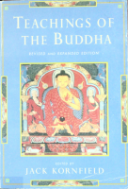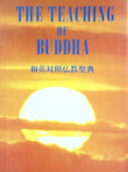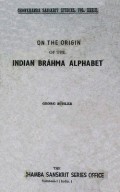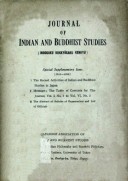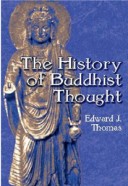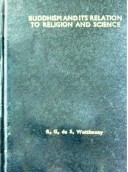Tìm Sách
Sách tiếng Anh-English >> Teaching Dhamma by Pictures
Thông tin tra cứu
- Tên sách : Teaching Dhamma by Pictures
- Tác giả : Ven. Buddhadasa Bhikkhu
- Dịch giả :
- Ngôn ngữ : Anh
- Số trang : 109
- Nhà xuất bản : Social Science Association Press of Thailand
- Năm xuất bản : 1968
- Phân loại : Sách tiếng Anh-English
- MCB : 12010000005571
- OPAC :
- Tóm tắt :
TEACHING DHAMMA BY PICTURES
Explanation of a Siamese
Traditional Buddhist Manuscript
By
VEN. BUDDHADASA BHIKKHU
Published by
Social Science Association Press of Thailand
For the Social Science Review
Bangkok2511/1968
PUBLISHER’S NOTE
The traditional artist of Siam had little connection with the credo of the modern artist. He did not try to work in an original, individual style. He did not aim at expressing his own personality or his particular philosophy; in fact he rarely signed his name to the work. Even as an individual he may have been one part of a painting team, perhaps a specialist in painting architecture of figures.
But whether the artist worked alone or with others, his main tention was to communicate. In the basic sense of the word he made visible an important message by means of pictorial examples. This was his chief role whether he worked on a mural, the cloth banners which are hung in the wat on a certain occasion, or on the samut khoi, the paper manuscript.
The Chaiya manuscript is an extremely interesting one and its fourty-seven pictures are an excellent illustration of the purpose of Siamese Buddhist painting and its traditional style.
CONTENTS
Introduction
Teaching Dhamma by Pictures
Fig. 1 The Six Elements
Fig. 2 Mind and body
Fig 3. Mind-control
Fig.4 The Way to escape from the Five Aggregates
Fig. 5 Wisdom sprung out of “the mud”
Fig. 6 The Three Kinds of Craving
Fig. 7 Dependent Origination
Fig. 8 Dependent Origination (continued)
Fig. 9 Dependent Origination (continued)
Fig. 10 Ignorance
Fig. 11 Ignorance and Its Results
Fig. 12 Ignoring the Truth
Fig. 13 Four Kinds of Attachment
Fig. 14 Understanding and Attachment
Fig. 15 The Wheel of Wandering-on
Fig. 16 Ocean close to the Eye-unseen
Fig. 17 Effect of Ignorance
Fig. 18 Wrong Practise of Buddha-Dhamma
Fig. 19 Right Practise of Buddha-Dhamma
Fig. 20 Acceptance of The Dhamma
Fig. 21 Meditation in a Secluded Place
Fig. 22 Contemplation on Corpses I-II
Fig. 23 Contemplation on Corpses III-IV
Fig. 24 Contemplation on corpses V-VI
Fig. 25 Contemplation on Corpses VII-VIII
Fig. 26 Contemplation on Corpses IX-X
Fig. 27 Three Essentials for Successful Practise
Fig. 28 Sammasananãna and Udayabbayanãna
Fig. 29 Bhanganãna and Bhayanãna
Fig. 30 Bhayanãna (by another artist)
Fig. 31 Ãdinavanãna and Nibbidãnãna
Fig. 32 Muccitukamyatãnãna
Fig. 33 Muccitukamyatãnãna
Fig. 34 Muccitukamyatanãna
Fig. 35 Muccitukamyatãnãna
Fig. 36 Muccitukamyatãnãna and Patisankkhãnãna
Fig. 37 Sankhãrupekkhãnãna
Fig. 38 Sccãnulomika-nãna
Fig. 39 Gotrabhũnãna
Fig. 40 Gotrabhũnãna
Fig. 41 Attainment of the Noble Fruits
Fig. 42 Four Stages of Knowledge
Fig. 43 Nibbãna
APPENDICES
Fig. 44 Freedom from Clinging
Fig. 45 Freedom from Attachment
Fig. 46 Nibbãna and Samsara
Fig. 47 The Value of Buddha-Dhamma
Index of Pali Terms
 Facebook
Facebook
 Google
Google
 Google+
Google+


